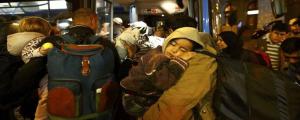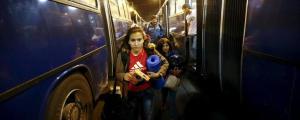European migrant crisis: Czech teachers create and share open resources
We are very pleased to have the opportunity to make more widely available a post by Jan Gondol, originally published on the Creative Commons blog, on developing OER to help address the knowledge needs caused by the current migrant crisis.
Jan Gondol (@jangondol) is Professional Advisor, Open Data to the Ministry of Interior, Slovak Republic.
He has worked on the Open Government Partnership (OGP) as co-author of Slovakia’s National Action Plan and is responsible for managing open data and open education activities under the OGP umbrella.
He is Advisor to Slovakia’s Digital Champion (Peter Pellegrini)
He is also Owner and CEO of Switzerlab since July 2011.
Collaboration between EDUin and the Czech Organisation of Civic Education Teachers
In the midst of the European migrant crisis, the Czech Republic is showing the power of open educational resources (OER).
EDUin, a non-profit organization based in Prague worked with the Czech organization of civic education teachers to address the current migrant crisis. Students in schools were asking questions and wanted to understand what was going on. Why are so many people on the run? What is the difference between a refugee and a migrant? What is the difference between migration, emigration and immigration?
The teachers worked on developing the materials for Czech schools, and the resulting worksheets are now shared on their website (in the Czech language). These worksheets are licensed under CC BY-NC-SA 3.0, and there are different versions for ages 6-11 and ages 12-16.

 “This activity shows that open educational resources can help react to a new situation very quickly in a way traditional textbooks cannot,” says Tamara Kováčová, coordinator of EDUin’s open education program.
“This activity shows that open educational resources can help react to a new situation very quickly in a way traditional textbooks cannot,” says Tamara Kováčová, coordinator of EDUin’s open education program.
“Because of fast distribution, materials get to schools around the country in a matter of days. Teachers get support in time when they need it and teaching is up-to-date. Furthermore, it’s possible to join several school subjects together on phenomenon based learning principle.”
The Editors of the Open Education Working Group blog would like to acknowledge the prior publication of this posting on the Creative Commons blog and thank Tamara Kováčová for encouraging wider distribution, and acknowledge the moral rights of Jan Gondol as author and Timothy Vollmer as editor of the original posting.
 Open Education Working Group
Open Education Working Group 





Leave a Reply